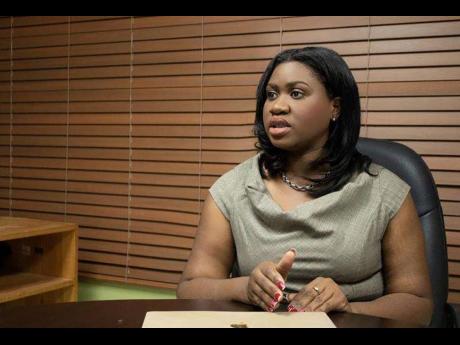‘Absolute madness’
JFJ slams proposal to impose minimum 20-yr prison term for children guilty of murder
A proposed amendment to the Child Care and Protection Act, which prescribes a term of not less than 20 years before a minor found guilty of committing murder becomes eligible for parole, is being described as “absolute madness” by one rights group...
A proposed amendment to the Child Care and Protection Act, which prescribes a term of not less than 20 years before a minor found guilty of committing murder becomes eligible for parole, is being described as “absolute madness” by one rights group.
The bill, which was tabled in Parliament last week, is a companion measure to a suite of proposed laws that will impose increased mandatory minimum sentences for murder.
Jamaicans for Justice (JFJ) Executive Director Mickel Jackson said she finds the “tough-on-crime” approach touted by the Government to be problematic and fraught with conflicting policies. She noted that, on the one hand, the administration proposes rehabilitation and child diversion while, on the other, it suggests “locking them away for years”.
At the same time, the Cornwall Bar Association President Michael Hemmings believes that members of the judiciary are capable of hearing matters and making a decision based on the merit of each case in determining punishment.
“No statute should try and dictate or step in the arena of the purview of the judiciary as it relates to imposing a statutory minimum mandatory sentence,” Hemmings said on Thursday.
Reacting to the suggested changes to the Child Care and Protection Act, Jackson said that it was the JFJ’s belief that any proposed legislation must have express provision for judicial discretion to be exercised. She said, when sentencing is being imposed on a child, the judge should have the authority to prescribe a sentence that deviates from any mandatory minimum term of incarceration.
Jackson called on the Government to conduct a comprehensive review of the Child Care and Protection Act.
“We call on the minister of youth and education, in particular, to focus on tabling proposals that address matters of corporal punishment and those that offer greater protection for children who are subjected to sexual and other forms of abuse, rather than one that sees children be locked away for an extended time,” Jackson said.
“What the Government is proposing is that children will be subjected to mandatory sentences, and the court cannot consider whether a child may be reformed through rehabilitative treatment or if their age may have played a part in their offence. Instead, courts are bound by the sentences mandated by the law.”
Jackson told The Gleaner that this practice undermines the Conventions of the Right of the Child to which Jamaica is a signatory. It is recognised that children have diminished culpability, greater prospects for reform, and are, therefore, less deserving of the most severe punishments, she added.
“We posit that courts must maintain sufficient discretion that, when they are sentencing children, they can make individualised determinations of culpability that not only look to the age of a minor but also consider the background, cognitive, mental and emotional development of the child,” the JFJ executive director said.
Jackson questioned: “How just is a society where a child at 12 or 13, for example, one who may have faced hardships, possibly exploited by a hardened criminal, be sentenced to a mandatory 20 years? Not possibly out before his or her 32nd birthday?”
While conceding that the crime rate in Jamaica is high, Jackson argued that neither fear nor political expediency should drive public policy.
The rights group contends that the courts must have the discretion to impose punishment that serves the best interests of the child while balancing public interest and safety.
“Quite frankly, we believe that the government’s attempt to undermine the court’s very discretion through excessive minimums is categorically repugnant to the rule of law and the concept of the separation of powers,” she said.
Hemmings further argued that there are provisions in the law that treat with minors when they are before the court, and the law also tries to safeguard children as it relates to the type of punishment they receive for crimes.
He argued that a minor who commits an offence is not beyond rehabilitation.
“Let’s say that a person at age 17 commits the offence of murder and you are saying a statutory minimum of 20 years, that person is in custody up to 37 years old before he can get parole. That person is not beyond rehabilitation and, again, it depends on the circumstances that led to the offence taking place,” he said.
Hemmings said there is a case before the Privy Council that will be testing the constitutionality of statutory minimum mandatory sentences. The attorney-at-law said he is awaiting the decision of Jamaica’s final court on that matter.
A joint select committee has been established to review amendments to the Child Care and Protection Act; the Criminal Justice (Administration) Act and the Offences Against the Person Act.
In January, Justice Minister Delroy Chuck signalled that the Government would be moving to introduce legislation that imposes mandatory minimum sentences of 50 years before parole for capital murder.

